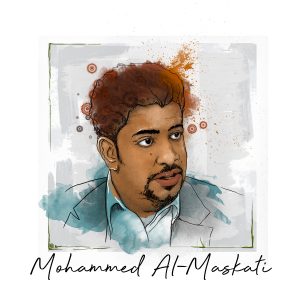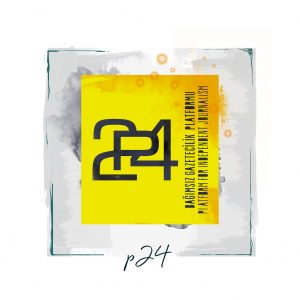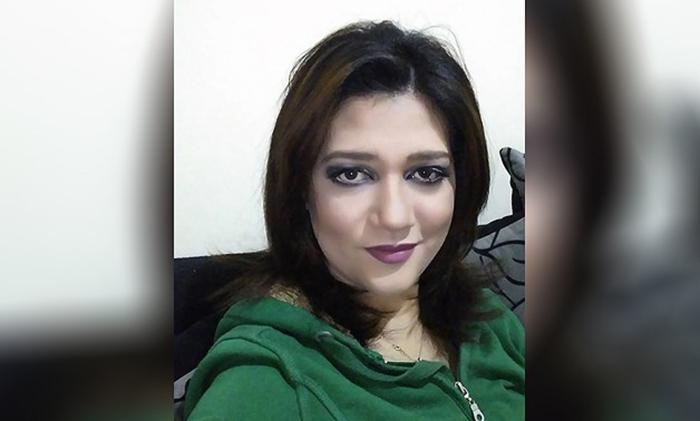19 Mar 2019 | Awards, News and features
[vc_row][vc_column][vc_video link=”https://youtu.be/1VVGMgSHM6U”][vc_column_text] Mohammed al-Maskati is a Bahraini activist and digital security consultant who provides digital security training to activists in the Middle East and in North Africa.
Mohammed al-Maskati is a Bahraini activist and digital security consultant who provides digital security training to activists in the Middle East and in North Africa.
Working as Frontline Defenders’ Digital Protection Consultant for the MENA Region, Mohammed teaches activists – ranging from vulnerable minorities to renowned campaigners taking on whole governments – to get the truth out despite governments’ attempt to shut them down. He educates them on the use of VPNs, and how to avoid falling into phishing or malware traps, create safe passwords and keep their accounts anonymous.
The MENA region is one of the most oppressive areas of the world for human rights defenders, but it is too often ignored by app and software developers, who do not provide products or instructions manual in Arabic.
Mohammed Al-Maskati opens the door to using digital security apps, and as a direct result of his training, a growing number of activists in the Middle East have reported being able to avoid government surveillance and reprisals.
Regional governments have also taken notice of Mohammed’s activities. In May 2014, during a visit to Oman, he was kidnapped from a taxi and disappeared for three days, during which he was asked the names of the people he was helping. He has been banned from travelling to at least five countries, making it more difficult to reach activists in the region.
A good example is Mohammed’s work in Iraq. Demonstrations erupted in September, and clashes broke out between protesters and Iraqi forces. The independent media websites reporting on the unrest were soon taken down by the government.
Mohammed travelled to Iraq and helped the activists to circumvent censorship, and the websites were able to keep going.
He had a similar impact in Egypt ahead of the March 2018 national elections, when the government was censoring not only websites but also several VPN services. Mohammed was able to arrange for a group of organisations to offer their VPN for free to Egyptian human rights defenders and journalists.
Mohammed has also been active to circumvent his travel ban. He has written Arabic-language training manuals on digital security, which he has released online, and set up a digital security email newsletter. He is also the founder of and part of the rapid response team, which is available 24 hours a day 7 days a week to help tackle digital attacks as they happen in real time.[/vc_column_text][vc_separator][vc_row_inner][vc_column_inner width=”1/2″][vc_single_image image=”104691″ img_size=”full” onclick=”custom_link” link=”https://www.indexoncensorship.org/2019/01/awards-2019/”][/vc_column_inner][vc_column_inner width=”1/2″][vc_column_text]
Index on Censorship’s Freedom of Expression Awards exist to celebrate individuals or groups who have had a significant impact fighting censorship anywhere in the world.[/vc_column_text][/vc_column_inner][/vc_row_inner][vc_separator][/vc_column][/vc_row][vc_row][vc_column][vc_basic_grid post_type=”post” max_items=”4″ element_width=”6″ grid_id=”vc_gid:1552650108302-4a47418b-5e3e-10″ taxonomies=”26925″][/vc_column][/vc_row]
14 Mar 2019 | Awards, News and features
[vc_row][vc_column][vc_video link=”https://youtu.be/AYDg8H16K0s”][vc_column_text] P24 (Platform for Independent Journalism) is a civil society organisation with an ambitious program to neutralise censorship in Turkey — a country in which speaking freely courts fines, arrest and lengthy jail sentences.
P24 (Platform for Independent Journalism) is a civil society organisation with an ambitious program to neutralise censorship in Turkey — a country in which speaking freely courts fines, arrest and lengthy jail sentences.
Turkey has become increasingly hostile to dissent in recent years. It recently replaced the emergency rule that started after the 2016 failed putsch with a presidential system in which executive powers are often unchecked. The country is the world’s largest jailer of journalists: some 183 journalists and media workers are in prison at the time of writing, including many in pre-trial detention.
But journalists are not the only ones in danger: academics, artists and ordinary Turks expressing dissent have faced legal sanctions, economic pressure, and even arrests. In a famous case, a woman was detained after being overheard criticising the Turkish president – while talking to a friend on a bus. Even some of P24’s workers have been detained, although not for their work with the organisation.
What makes P24 impressive is that it has been able to mount an ambitious programme even in such a high-risk environment, providing a glimmer of hope for civil society in Turkey. It has created a set of mutually reinforcing activities to promote free expression and fight to fill the democratic deficit.
Its legal team defends journalists and academics who are on trial because they exercised their right to free expression. P24 does its legal work on a pro bono basis, hoping to set important precedents in the Turkish legal system.
P24 also undertakes coordinated social media and public advocacy that include live-tweeting from courtrooms and campaigning through an array of websites, newsletters and exhibition spaces. One of its efforts — Expression Interrupted – is a website and newsletter tracking the progress of freedom of expression cases throughout the country.
P24 also provides safe spaces for freedom of expression. Susma24 is an outreach programme in which it brings together local bar associations and artistic communities. Through K24 and KIRAATHANE, its newly launched literature house, P24 also offers freelance opportunities and visibility to those excluded from the mainstream by the government’s ongoing stifling of dissent.
P24, one of Turkey’s most active civil society organisations secured the release of a young photographer, Cağdaş Erdoğan. While Erdoğan has been able to exhibit in Europe, no Turkish gallery wanted to show his photography – so P24 organised an exhibition in its new Literature House “KIRAATHANE”, one of its latest initiatives. In 2018, P24 also published three books on journalism, innovation and media freedom in its media library.[/vc_column_text][vc_separator][vc_row_inner][vc_column_inner width=”1/2″][vc_single_image image=”104691″ img_size=”full” onclick=”custom_link” link=”https://www.indexoncensorship.org/2019/01/awards-2019/”][/vc_column_inner][vc_column_inner width=”1/2″][vc_column_text]
Index on Censorship’s Freedom of Expression Awards exist to celebrate individuals or groups who have had a significant impact fighting censorship anywhere in the world.[/vc_column_text][/vc_column_inner][/vc_row_inner][vc_separator][/vc_column][/vc_row][vc_row][vc_column][vc_basic_grid post_type=”post” max_items=”4″ element_width=”6″ grid_id=”vc_gid:1552057651002-8eabcc7d-44fd-4″ taxonomies=”26925″][/vc_column][/vc_row]
8 Mar 2019 | Awards, Campaigns -- Featured, Egypt, Fellowship, Fellowship 2018, Middle East and North Africa, Statements
[vc_row][vc_column][vc_column_text]
On International Women’s Day Doughty Street Chambers and Index on Censorship renew calls for the threat of arrest to be dropped for Egyptian women’s rights defender Amal Fathy.
Ms Fathy, who made a video about her experience of sexual harassment in Egypt, was arrested in May 2018. She was initially arrested with her husband Mohamed Lotfy, and their two-year-old son. Lotfy leads the Egyptian Commission for Rights and Freedoms (ECRF), an award-winning organisation which coordinates campaigns for those who have been tortured or disappeared. Lofty and their son were released, but Ms Fathy remained in detention and was charged in relation to her social media post. She spent 230 days in prison on charges including “spreading fake news national security” and “belonging to a terrorist group”.
In July 2018 Index on Censorship, the Egyptian Commission for Rights and Freedoms (ECRF) and counsel at Doughty Street Chambers, Caoilfhionn Gallagher QC, Jonathan Price and Jennifer Robinson, filed an appeal against Egypt with an expert United Nations body, the Working Group on Arbitrary Detention (WGAD). The appeal concerned Ms Fathy’s then ongoing detention and it called on the WGAD to issue a finding that her detention is arbitrary and in violation of Egypt’s obligations under international law, to call for her immediate release, and to ask Egypt to investigate her unlawful detention and to award her compensation.
Since the urgent appeal was filed, on 29 September 2018, Ms Fathy was convicted in relation to the first prosecution on charges of spreading fake news undermining national security and possessing indecent material and sentenced to two years in prison and a fine. Her appeal was dismissed on 30 December 2018. She has one final appeal to the Court of Cassation and was granted bail pending the appeal outcome. Her conviction was widely condemned, including by Amnesty International and by UN experts.
Ms Fathy also faces a separate state security prosecution which alleges belonging to a terrorist group. After significant international pressure and condemnation, she was released on 28 December 2018 with restrictive house arrest conditions pending trial. These restrictions were relaxed on 9 February 2019, but she remains at risk of imprisonment for exercising her internationally protected right to free speech and faces a further trial.
Index on Censorship, ECRF and counsel have continued to take action to secure justice for Amal Fathy. In recent weeks, on 25 February 2019, they filed further information with the WGAD at its request. The UN Special Rapporteur on the promotion and protection of human rights and fundamental freedoms while countering terrorism, Fionnuala Ni Aoláin, in her report to the Human Rights Council, currently in session in Geneva, described Amal Fathy’s case as one part of a disturbing trend:
“Civil society actors of all walks of society – academics, prominent human rights defenders, such as Ms. Amal Fathy, a member of the Egyptian Commission for rights and freedoms, Mr. Cemil Tekeli, professor of law at Medeniyet University in Istanbul and a member of the International Jurists Union, Mr. Taner Kilic, Chair of Amnesty International Turkey, Mr. Saeed Baloch is the General Secretary of the Pakistan Fisherfold Forum and a member of the Human Rights Commission of Pakistan, as well as individuals working for national and international NGOs, bloggers, writers, lawyers, translators, doctors, artists, film directors, such as Mr. Oleg Sentsov, representatives of indigenous and minority groups, trade union activists, refugees as well as entire groups, such as women and LGBTI activists, religious and indigenous groups, even individuals from entire countries, are increasingly subjected to a range of overlapping harassment measures broadly linked to countering terrorism. Importantly, multiple allegations… point to the layered, overlapping and sustained nature of the measures taken to target members and groups of civil society. The ensuing exponential cumulative impact aims to discredit civil society as a whole.”
Caoilfhionn Gallagher QC of Doughty Street Chambers said:
“Amal Fathy spent 230 days in prison, in unsanitary and unsafe conditions, without meaningful access to her lawyers, and away from her family and young son. Despite having now finally been released on bail, she continues to face imprisonment for speaking out about the rights of women in Egypt. On International Women’s Day 2019, we call on the international community to condemn Egypt’s flagrant breaches of her basic rights to liberty, due process and dignity.”
“The voices of women who are silenced worldwide for speaking out against harassment must be heard,” said Index on Censorship chief executive Jodie Ginsberg. “How many of us would be willing to speak out against abuse and injustice knowing we would be forcibly removed from our loved ones and forced to languish in jail for doing so? We urge the international community to renew its condemnation of Egypt’s actions and show support for the rights of women and of freedom of speech.”
The organisations have requested the WGAD to:
- gather, request, receive and exchange information and communications from the Egyptian Government in relation to this case;
- render an opinion on Ms Fathy’s case, including her period in prison and the ongoing restrictions on her liberty, finding that Egypt has failed to adhere to its own obligations, and violated the rights of the complainants, under international law; and
- call for Ms Fathy’s unconditional release and for Egypt to award her compensation.
The next WGAD session will take place in April 2019.
Ms Fathy’s case has been covered widely in the media: here, here and here.
[/vc_column_text][/vc_column][/vc_row][vc_row][vc_column][vc_basic_grid post_type=”post” max_items=”4″ element_width=”6″ grid_id=”vc_gid:1552043247516-5d55a87c-b38d-6″ taxonomies=”25926, 7376″][/vc_column][/vc_row]
5 Mar 2019 | Awards, News and features
[vc_row][vc_column][vc_video link=”https://youtu.be/IOoITI_aB1U”][vc_column_text] ArtLords is a grassroots movement of artists and volunteers in Afghanistan who encourage ordinary citizens, especially women and children, to paint the issues that concern them on so-called blast walls: walls the country’s rich and the powerful have built around themselves to protect them from violence while the poor fend for themselves.
ArtLords is a grassroots movement of artists and volunteers in Afghanistan who encourage ordinary citizens, especially women and children, to paint the issues that concern them on so-called blast walls: walls the country’s rich and the powerful have built around themselves to protect them from violence while the poor fend for themselves.
Three decades of war have changed Afghanistan’s social fabric dramatically. Violence and pressure from groups ranging from terrorists to government forces to drug lords has stoked fear in the population, fuelling self-censorship. Journalists, activists and artists have been threatened and killed. The ArtLords themselves have been threatened and accused of being spies.
According to Reuters, “some city streets have been turned into concrete canyons”. The ArtLords, whose name is in opposition to the warlords and drug lords at the root of many of Afghanistan’s problems, have turned these walls into canvases. Recurrent themes painted by citizens include anti-corruption, women’s rights and polio eradication.
In their most famous artwork, called I See You, the group painted eyes on the walls of the National Directorate of Security as a warning to corrupt officials. The painting mysteriously disappeared a few days after being completed, sparking public outcry.
Another mural takes a dig at the rich and powerful, depicting a black SUV with its windows tinted, and reads “What are you carrying, that your windows are black? You don’t have a license plate and don’t stop for searches.” Other paintings celebrated women who died serving Afghanistan and victims of random violence.
Their work has turned a symbol of fear, tension and separation into a platform where social issues can be expressed visually and discussed in the street.
The team has been threatened many times – they’ve been accused of becoming infidels, being CIA spies, standing against Sharia Law. ArtLords have also been indirectly targeted by the government because of their attempts to call out corrupt officials – and the government has whitewashed at least one of their murals.
ArtLords has completed over 400 murals in 16 provinces of Afghanistan, partnering with NATO, UNICEF, embassies and being covered widely in Western media. In March 2018, for International Women’s Day, ArtLords painted a tribute to Professor Hamida Barmaki, a woman human rights defender killed in a terrorist attack six years ago.
ArtLords is also collaborating on murals with the support Canadian Embassy in Kabul, UNICEF and the National Endowment for Democracy on themes such as tolerance, empathy and respect.[/vc_column_text][/vc_column][/vc_row][vc_row][vc_column][vc_separator][vc_row_inner][vc_column_inner width=”1/2″][vc_single_image image=”104691″ img_size=”full” onclick=”custom_link” link=”https://www.indexoncensorship.org/2019/01/awards-2019/”][/vc_column_inner][vc_column_inner width=”1/2″][vc_column_text]
Index on Censorship’s Freedom of Expression Awards exist to celebrate individuals or groups who have had a significant impact fighting censorship anywhere in the world.[/vc_column_text][/vc_column_inner][/vc_row_inner][vc_separator][/vc_column][/vc_row][vc_row][vc_column][vc_basic_grid post_type=”post” max_items=”4″ element_width=”6″ grid_id=”vc_gid:1551800428751-ed837da4-cccd-5″ taxonomies=”26925″][/vc_column][/vc_row]
 Mohammed al-Maskati is a Bahraini activist and digital security consultant who provides digital security training to activists in the Middle East and in North Africa.
Mohammed al-Maskati is a Bahraini activist and digital security consultant who provides digital security training to activists in the Middle East and in North Africa.
 P24 (Platform for Independent Journalism) is a civil society organisation with an ambitious program to neutralise censorship in Turkey — a country in which speaking freely courts fines, arrest and lengthy jail sentences.
P24 (Platform for Independent Journalism) is a civil society organisation with an ambitious program to neutralise censorship in Turkey — a country in which speaking freely courts fines, arrest and lengthy jail sentences. 
 ArtLords is a grassroots movement of artists and volunteers in Afghanistan who
ArtLords is a grassroots movement of artists and volunteers in Afghanistan who